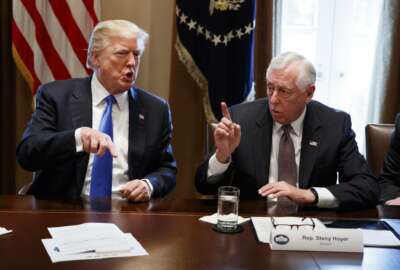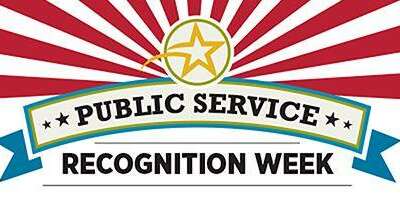
ISO an honest, hard-working bureaucrat
Everybody has an opinion on the government, on the bureaucracy, on rules and regulations. And much of it is bad. But where does that come from?
Okay, so Washington, D.C., is a swamp which means most if not all of you who live outside the Beltway, which is most feds, are toads — or worse. If you have any doubts that most agencies are dysfunctional or worse, or that most civil servants aren’t very civil and don’t do much serving, look around you.
Or maybe not?
Could it be that people who really know how government works, and what it does have a pretty high opinion of how Uncle Sam’s crew really works, and what it does? Does the bad image so many Americans have of the workings of their government come from politicians, or from movie producers, who talk about faceless bureaucrats, crafty but evil CIA officials and out of control IRS officials?
Coming from an also much maligned profession myself I know what it’s like to be on the wrong side of a good public image. It triggered this trip down memory lane.
Years ago in another life and zip code at a different publication I was assigned to do a story about federal workers. It concerned a pay raise. I did my duty, checked the clips spoke to real human beings via telephone — people did that then — and got the story with the all-important new pay table. I turned it in, four copies minus carbons, and waited. I can still hear my editor, who was normally a cool, calm, collected World War II veteran, yelling across the newsroom.
“Ace,” he bellowed, “over here now!” He always called me Ace, or Irish. I least I think it was Ace. Whatever! Anyhow, I approached his desk. He was waving my story in the air. “They make this much?” he said, pointing to the then-GS-1 through -18 pay table?
I checked it over and said “Yessir.” He was stunned that a GS-13 (I think it was) made more than he did. Wisely, I said nothing.
Then my normally unflappable boss went on a rant:
“They don’t do anything,” he said of government workers in general. “They just come and go. They sit there. They don’t do anything.”
I wisely concurred, even though my mother and most of our neighbors in D.C. worked for Uncle Sam and seemed to be decent folks. He continued blasting federal workers as wimps and clock-watchers as time-serving drones. “Except,” he said, for the one civil servant he knew personally: His friend and neighbor.
Then he went on about how his friend worked 12-hour days for six and seven days a week, sent his family to Rehoboth Beach on vacation while he stayed on the job. The guy was worth twice whatever he was making, my chief said.
Wisely I still said nothing. I wanted to point out to my boss how fortunate he was in life. He had a charmed existence. He was born in the greatest state (Massachusetts). He served in the best military branch (Navy). He went to the greatest college, (University of Notre Dame). And of all the bureaucrats in the Washington area he lived next door to the only one who was worth a damn. The rest were losers, except the one he knew best. Bottom line, this was one lucky editor, one lucky husband, one lucky American to live next door to the pick-of-the-litter in a city full of bureaucratic losers.
As he was my boss, I didn’t say anything. But it did make me think. Over the years I’ve run into some pretty terrific bureaucrats and very few losers among them. Lucky me, right?
What’s the point? Everybody has an opinion on the government, on the bureaucracy, on rules and regulations. And much of it is bad. Except many, if not most of us have, at some point in our lives, run across a fed who really impressed us, maybe saved us money or our life!
Maybe you and I can do something about it with this May Day alert:
Think of a friend, maybe a coworker either active or retired who did or is doing a super good job. Maybe it’s one which is critical to the nation’s health, safety, transportation system or economy? Now’s your chance to give them a pat-on-the-back with one quick click:
If you would like to thank someone for their dedication to federal public service, you can send them an e-card as part of our May We Say Thank You 2019 campaign.
Nearly Useless Factoid
By Amelia Brust
Last year, researchers at Lancaster University in England experimented with adding carrots to concrete to both strengthen the concrete and reduce its carbon dioxide emissions by using less of it. So far, results were positive, thanks to the cellulose in carrots which alters how water reacts to cement.
Source: Reuters
Copyright © 2025 Federal News Network. All rights reserved. This website is not intended for users located within the European Economic Area.
Mike Causey is senior correspondent for Federal News Network and writes his daily Federal Report column on federal employees’ pay, benefits and retirement.
Follow @mcauseyWFED





